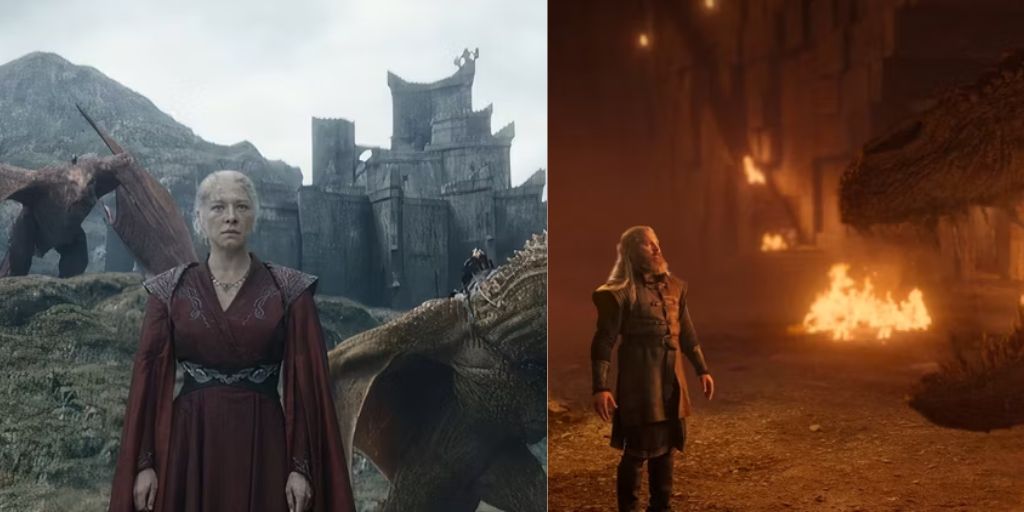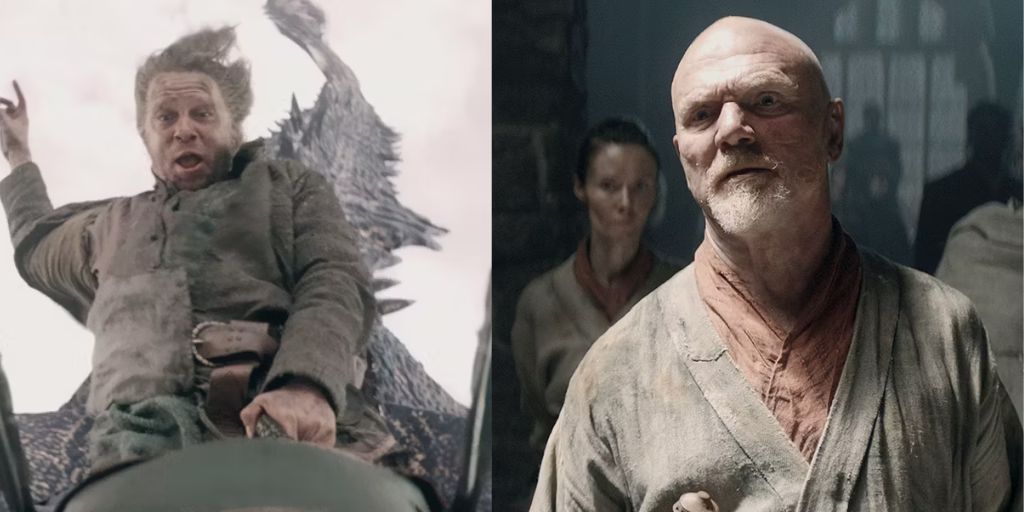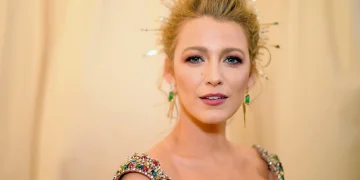While Vermithor’s destruction of Targaryen bastards was the most talked-about moment in last week’s House of The Dragon episode, the scenes before it might be even more interesting.
Specifically, the scene between Rhaenyra and her dragonkeepers is quite significant. Before taking the dragonseeds to Vermithor, Rhaenyra (Emma D’Arcy) loses all of her dragonkeepers.
They go on strike, protesting against Rhaenyra’s plan for the dragonseeds and expressing their disapproval directly to her. This could be a big problem, as there are fewer people to help train Ulf (Tom Bennett), Addam (Clinton Liberty), and Hugh Hammer (Kieran Bew) to become skilled dragonriders.
But the more intriguing aspect is the way the dragonkeepers view the dragons. They think Rhaenyra’s plan not only breaks tradition but also mistreats the dragons.
The dragonkeepers believe in the old Valyrian histories, which say that only certain people, specifically those born into dragonlord families, can ride dragons. This implies that families like the Velaryons and Celtigars would not have the same ability.
From their discussion with Rhaenyra, it is clear that the dragonkeepers see dragons not just as animals but as gods.
They are very devoted to them. However, Jace (Harry Collett) mentioned that these histories might be propaganda created to make the Targaryens seem closer to gods than to ordinary people. This idea is being challenged right in front of everyone.
The Targaryens’ power, including their practice of incest, is based on the belief that they are the only ones who can ride dragons and are therefore special.
In Fire & Blood by George R. R. Martin, it is mentioned that before the Dance of the Dragons, King Jaehaerys (Michael Carter) established the Doctrine of Exceptionalism. This doctrine says that Targaryens are exempt from prosecution for incest by the Faith of the Seven because of their connection with dragons.
This highlights the power the Targaryens had in those times. That power faded after the Dance of Dragons showed that Targaryens and their dragons were not invincible.
We see this when Criston Cole (Fabien Frankel) parades Meleys’ head through the city. By using dragonseeds, Rhaenyra has further challenged the myth of the Targaryens. It seems this was too much for the dragonkeepers, who could not accept this challenge to their core beliefs.
The dragonkeepers, like followers of Old Valyria, see dragons as sacred. They believe that noble lineage and birthright are the sources of the Targaryens’ magical connection with dragons. They have dedicated their lives to this belief, and Rhaenyra’s plan is an insult to their devotion.
If bastards and non-Valyrians can approach these “sacred” dragons, it reduces the dragonkeepers’ role from that of priests to mere stablehands. But their dislike for Rhaenyra’s plan is not just due to their own status.
The Dragonkeepers Do Not Believe the Dragons Should Be Used in Political Games
The dragonkeepers are not only protecting their roles as devoted worshipers. One dragonkeeper argues that dragons are the “last magic of Old Valyria” and should not be used in “man’s games.”
They are upset that bastards are becoming dragonriders, but they are especially outraged that this change is happening so dragons can fight each other in a war among family members.

This shows that the dragonkeepers are not like other players in Westeros. They care more about their devotion to the dragons than about their own status. Seeing dragons used as weapons or toys, rather than being honored, would make them abandon their role.
The dragonkeepers add depth and interest to the House of the Dragon story. Their dedication to the dragons highlights their importance and sets them apart from the political maneuvering in the show. It remains to be seen if the dragonkeepers will return. Will they go to King’s Landing, leave Westeros entirely, or come back to Rhaenyra?





